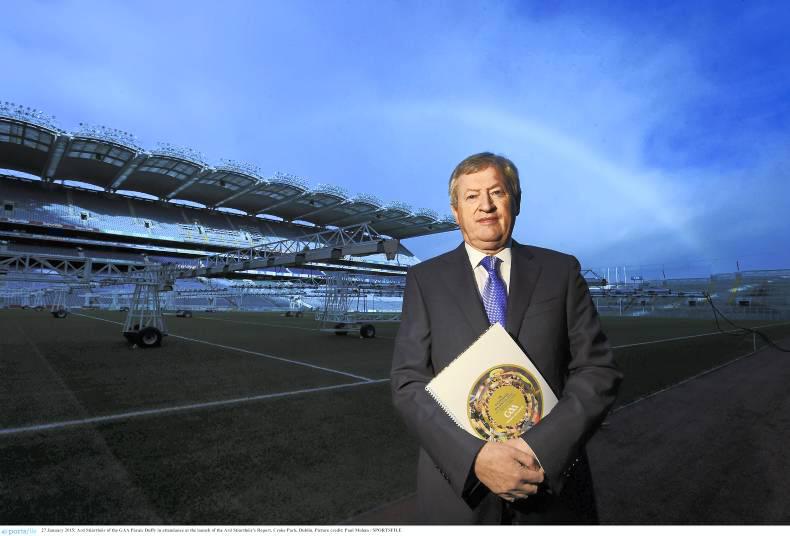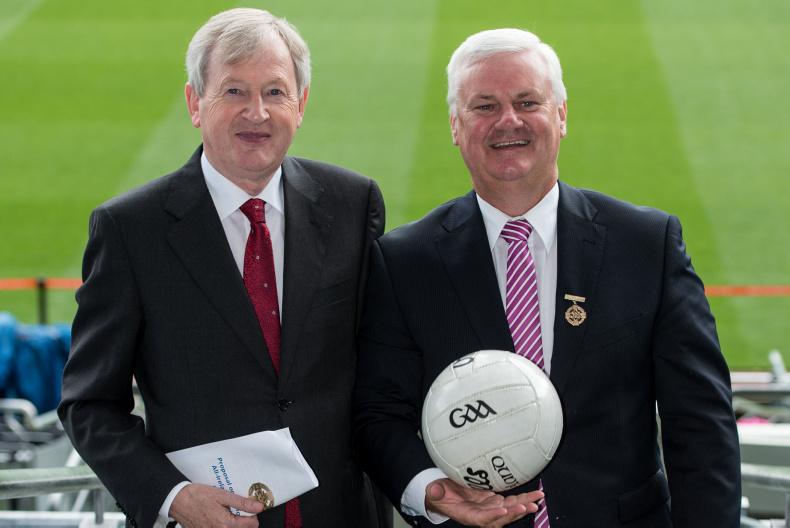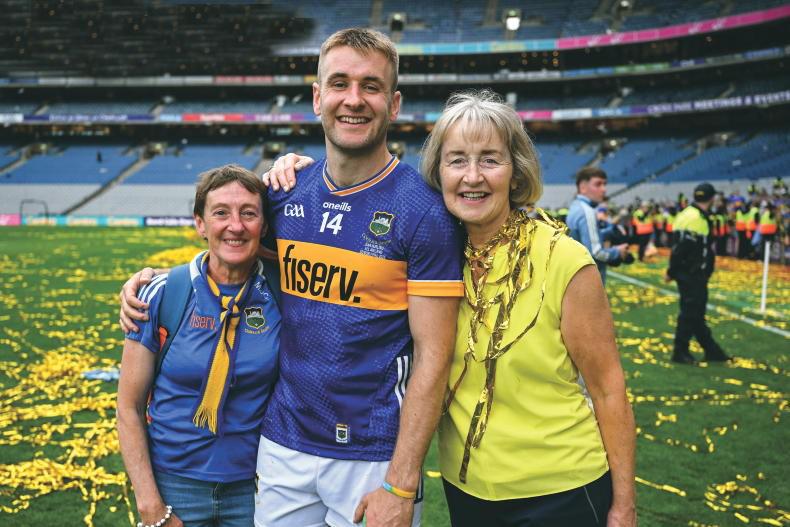December means the GAA off-season and that window appears to be getting smaller and smaller. Usually at this time every year, we have a few months to debate topics that have consumed us throughout the year, but these days we only have a week or two before it all starts again.
This is also the month that signals the end of the inter-county training ban, so panels all over Ireland are now allowed to meet in the open, having spent the last few weeks in huddled groups of six or seven in gyms up and down the country. Players are notoriously self-involved in almost all codes, preferring to leave the administration of games to the administrators and simply get on with playing, although the Gaelic Players Association (GPA) seems to finally be bucking that trend.
The GPA’s members have been canvassed on changes to the football championship and, according to their responses, 31 out of 32 counties are in favour of a change which would see a Champions League format put in place for the All-Ireland after the provincial championships have been completed.
Following its AGM at the weekend, the GPA adopted a motion calling on the GAA, of which it is now an integral part, to bring long-overdue changes to the championship structure. It will be interesting to see how this pans out because the GPA, since its merger with the mother ship, has been noticeably quiet on some of the bigger issues in the game – the structures of the football championship being one of them.
One wonders how much interaction director general of the GAA Paraic Duffy had with the GPA when he unveiled a number of proposals last month – 11 in all – which will go before GAA congress in the spring. Funnily enough, it is highly unlikely that the GPA’s ideas will see the floor of congress.
Proposed changes
Duffy’s 11-point plan is designed to address player burnout and some of his recommendations certainly carry merit. Here are his proposals in full, all of which will probably be voted on:
1 Regrade the inter-county minor championship from under-18 to under-17 (from 2018).
2 Play the new minor championships alongside the senior championships, as is currently the case (from 2018).
3 Discontinue the under-21 football inter-county championship (from 2018).
4 Conclude the All-Ireland under-21 inter-county championship before the senior final (from 2018).
5 Increase the number of national league weekends, doubling up football and hurling fixtures (from 2017).
6 Discontinue the football league division one semi-finals.
7 Establish in rule that players, who are not in the match-day panel of 26, must be available to their clubs (from 2017).
8 Bring forward the senior All-Irelands by two weeks with the football final played on the first Sunday in September and the hurling two weeks before (from 2017).
9 Play extra time at the end of drawn championship matches (from 2017).
10 Discontinue the All-Ireland inter-county junior football and intermediate hurling championships (from 2017).
11 Introduce a calendar-year fixtures schedule.
Of the 11 motions, I suspect he will do well to have six carried. As yet, it is unclear as to whether a two-thirds majority will be needed on all of them, but rule changes do need that large majority and some of the 11 mightn’t fall under that.
Concluding the All-Ireland championships a couple of weeks earlier should meet with universal approval. That might be the easiest of his measures to pass. He might also see his call for national league weekends to be doubled up succeed, because a chance for delegates to properly kill off any suggestion of a dual player won’t be passed up.
The last of his wishlist asks for a calendar-year fixtures schedule and most GAA followers are probably in favour, although many will wonder at how it can work in practice.
After that, I think our director general will struggle. Abolishing the U-21 football championship while at the same time changing the minor qualification from 18 to 17 years of age will leave quite the gap for county players or, more importantly, potential county players, after they stop minor football for their county and the next time they don the county colours.
An alternative county competition at U-19 or U-20 hasn’t been suggested by Duffy, indicating that he feels most of the burnout is for players between 17 and 21. Of course he is right, but addressing a primary GAA competition like the U-21 championship and ignoring the recent explosion of interest and commitment in third-level college competitions is a little strange.
It would be worth mentioning now that a host of GAA players, in both codes and sexes, are now benefiting from various scholarships and bursaries. On receiving this help, they are naturally expected to represent their colleges on the field.
These are just some of the considerations that Duffy must deal with and that’s before the provincial councils and their allies rally round to defeat a few more of his measures. Prime among them is the potential end of replays in championship and all the revenue they bring the councils. That dog won’t hunt. Abolishing national league semi-finals is mere window dressing on the burnout issue, as is the rule that would allow county panellists turn out for their clubs on national league weekends when they’re not part of the match-day panel.
I don’t envy Duffy’s position and can understand his efforts to gain some traction for change in the association. Should he somehow manage to get rid of the U-21 championship then he will have struck a blow for modernists (keep in mind that GAA games have been 15-a-side for well over 100 years).
Player burnout will stay with us, not because of the GAA schedule, but because of sport science and money. As long as the (successful) management teams have the funds and personnel to manage and organise the most elite of preparation for their squads, they continue to raise the bar. Players will continue to accept it; most will expect it; almost all will want it.
To combat that, congress and Paraic Duffy can do little but go along with it.










SHARING OPTIONS